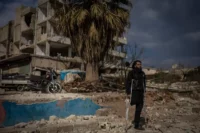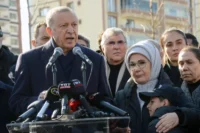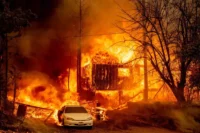
La crisis que cambió mi vida sigue sucediendo
En las últimas semanas, muchas personas de todo el mundo han celebrado conmigo varios primeros hitos de mi carrera: desde ganar mi primer Globo de Oro y mi primer premio del Sindicato de Actores de Cine, hasta ganar mi primer Oscar (por mejor actriz). Aunque estoy agradecida por este momento inolvidable de mi vida profesional, quisiera dirigir el foco internacional hacia un asunto que es muy personal para mí, y que merece la atención del mundo.
Mi vida cambió hace ocho años, cuando un momento sacudió mi visión del mundo.
Era el 25 de abril de 2015, y estaba en Nepal con mi pareja, Jean Todt, visitando varias organizaciones del lugar.… Seguir leyendo »















